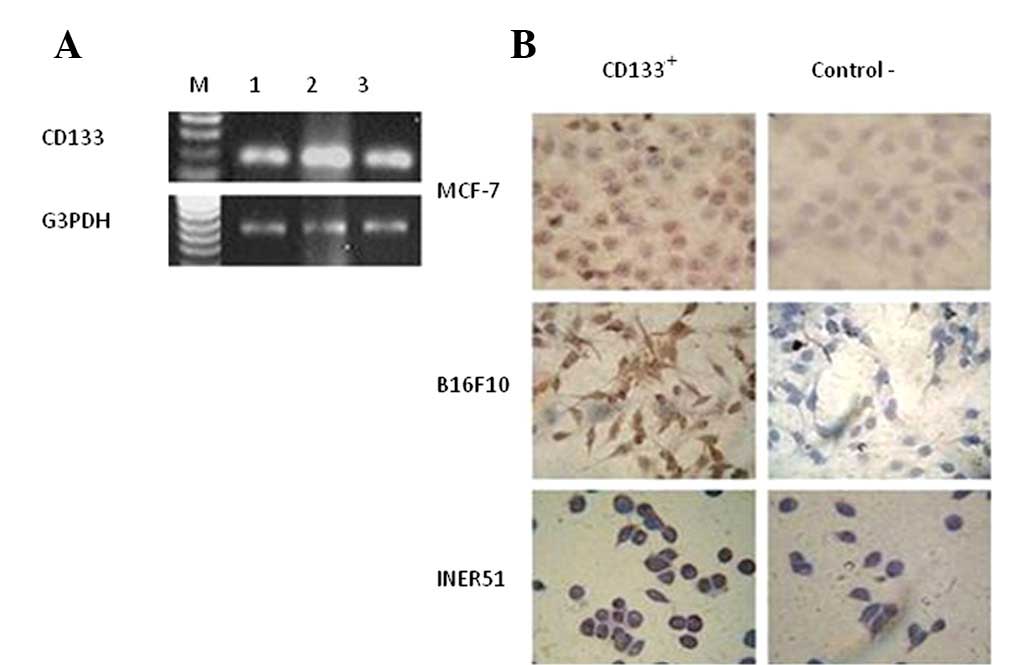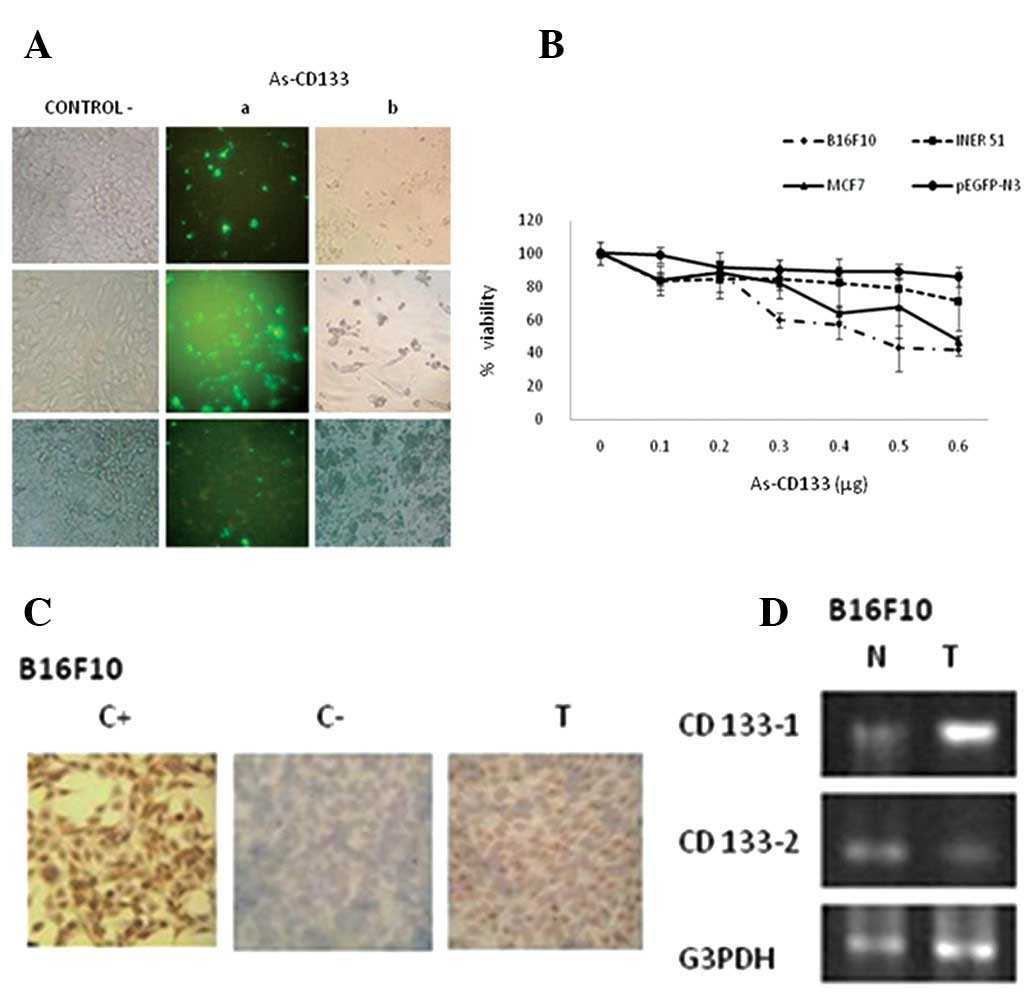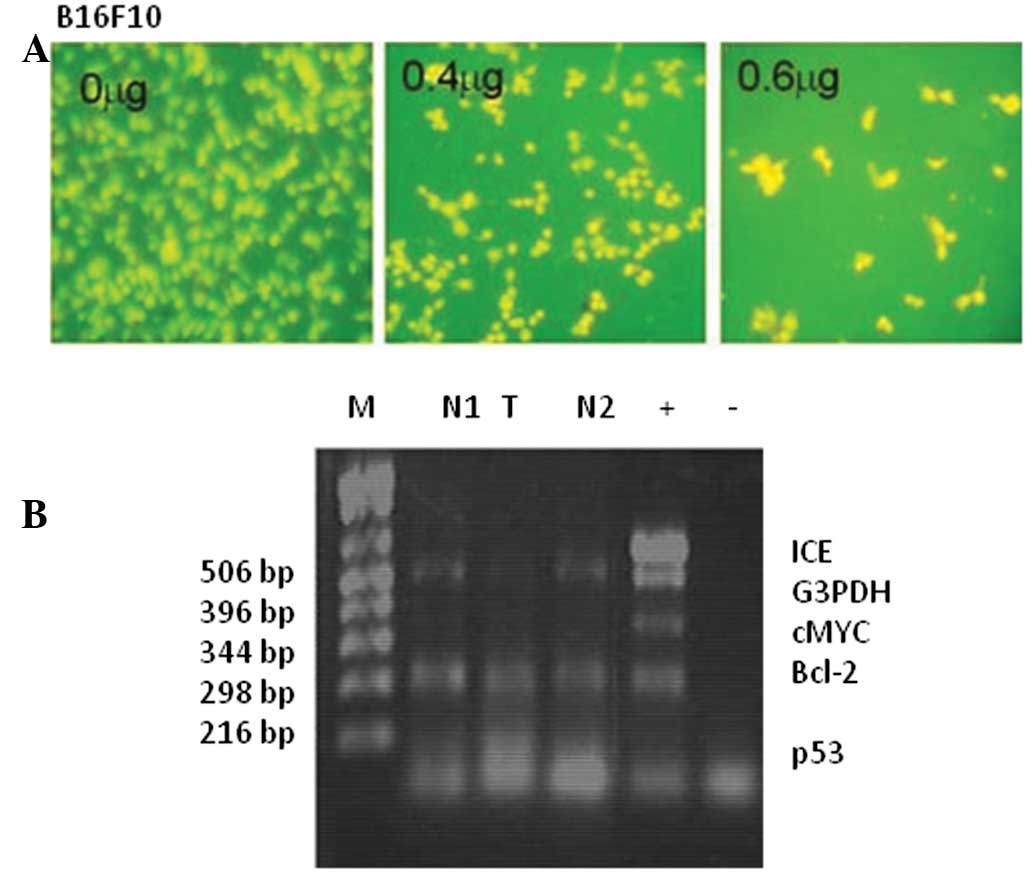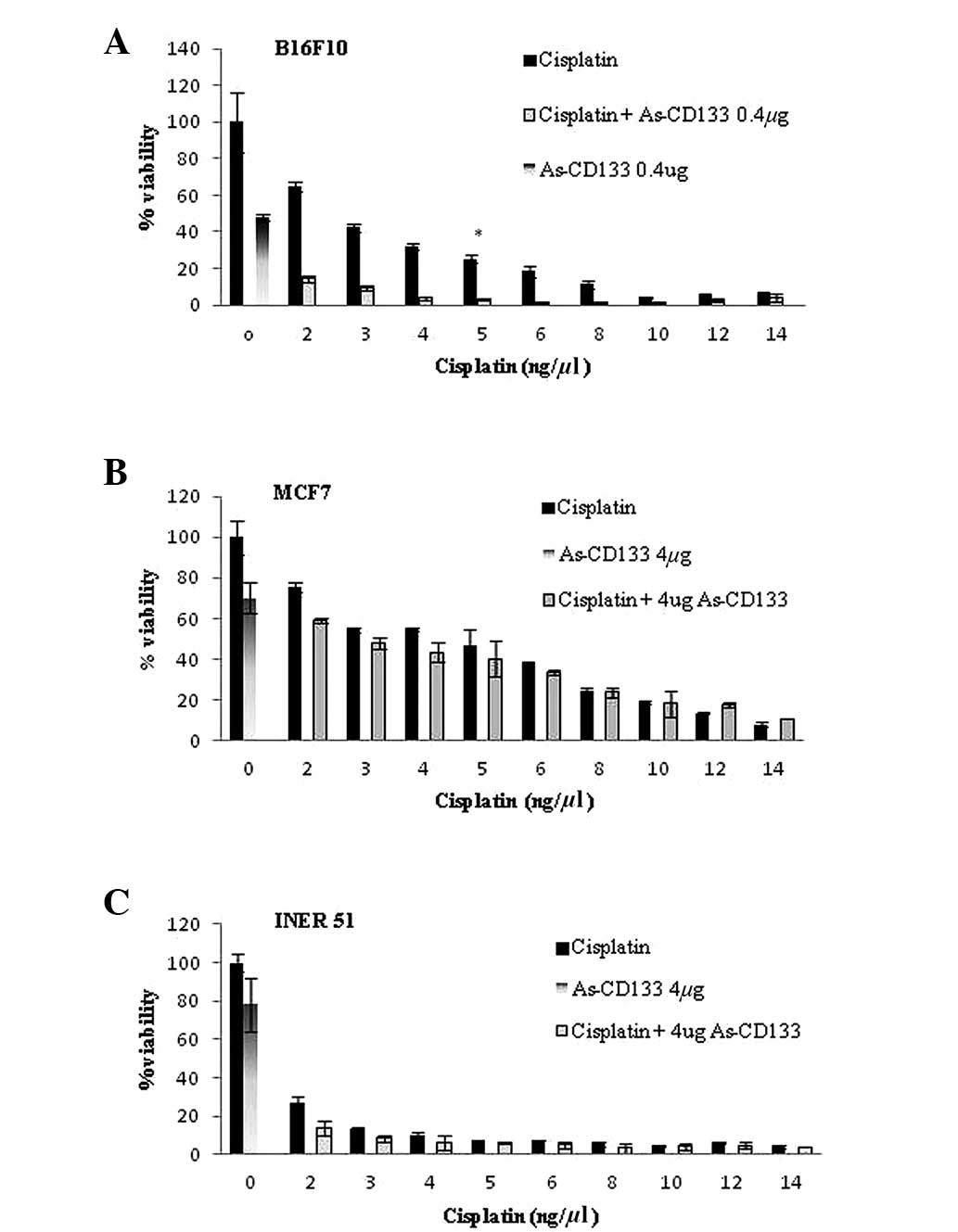|
1
|
Greenwald P and Dunn BK: Landmarks in the
history of cancer epidemiology. Cancer Res. 69:2151–2162. 2009.
View Article : Google Scholar : PubMed/NCBI
|
|
2
|
Gray-Schopfer V, Wellbrock C and Marais R:
Melanoma biology and new targeted therapy. Nature. 445:851–857.
2007. View Article : Google Scholar : PubMed/NCBI
|
|
3
|
Jemal A, Murray T, Ward E, et al: Cancer
statistics. CA Cancer J Clin. 55:10–30. 2005.
|
|
4
|
Organización Mundial de la Salud [OMS]:
2011.Cáncer. Nota descriptiva No. 297. http://www.who.int/mediacentre/factsheets/fs297/es/index.htmluri.
Accessed April 16, 2012.
|
|
5
|
MacKie RM, Hauschild A and Eggermont AMM:
Epidemiology of invasive cutaneous melanoma. Ann Oncol. 20(Suppl
6): vi1–7. 2009. View Article : Google Scholar : PubMed/NCBI
|
|
6
|
Bongiorno MR, Doukaki S, Malleo F and
Aricò M: Identification of progenitor cancer stem cell in lentigo
maligno melanoma. Dermatol Ther. 21(Suppl 1): S1–S5. 2008.
View Article : Google Scholar : PubMed/NCBI
|
|
7
|
Rappa G, Fodstad O and Lorico A: The stem
cell-associated antigen CD133 (Prominin-1) is a molecular
therapeutic target for metastatic melanoma. Stem Cells.
26:3008–3017. 2008. View Article : Google Scholar : PubMed/NCBI
|
|
8
|
Shmelkov SV, Jun L, St Clair R, et al:
Alternative promoters regulate transcription of the gene that
encodes stem cell surface protein AC133. Blood. 103:2055–2061.
2004. View Article : Google Scholar : PubMed/NCBI
|
|
9
|
Beier D, Hau P, Proescholdt M, et al:
CD133+ and CD133− glioblastoma-derived cancer
stem cells show differential growth characteristics and molecular
profiles. Cancer Res. 67:4010–4015. 2007.PubMed/NCBI
|
|
10
|
Bruno S, Bussolati B, Grange C, Collino F,
Graziano ME, Fernando U and Camussi G: CD133+ renal
progenitor cell contribute to tumor angiogenesis. Am J Pathol.
169:2223–2236. 2006.
|
|
11
|
Sims AH, Howell A, Howell SJ and Clarke
RB: Origins of breast cancer subtypes and therapeutic implications.
Nat Clin Pract Oncol. 4:516–525. 2007. View Article : Google Scholar : PubMed/NCBI
|
|
12
|
Wright MH, Calcagno AM, Salcido CD,
Carlson MD, Ambudkar SV and Varticovski L: Brca1 breast tumor
contain distinct CD44+/CD24− and
CD133+ cell with cancer stem cell characteristic. Breast
Cancer Res. 10:R102008. View
Article : Google Scholar : PubMed/NCBI
|
|
13
|
Dou J, Pan M, Wen P, et al: Isolation and
identification of cancer stem-like cells from murine melanoma cell
lines. Cell Mol Immunol. 4:467–472. 2007.PubMed/NCBI
|
|
14
|
Huang EH, Heidt DG, Li CW and Simeone DM:
Cancer stem cells: a new paradigm for understanding tumor
progression and therapeutic resistance. Surgery. 141:415–419. 2007.
View Article : Google Scholar : PubMed/NCBI
|
|
15
|
Song W, Li H, Tao K, Li R, Song Z, Zhao Q,
Zhang F and Duo K: Expression and clinical significance of the stem
cell marker CD133 in hepatocellular carcinoma. Int J Clin Pract.
62:1212–1218. 2008. View Article : Google Scholar : PubMed/NCBI
|
|
16
|
Dell’Albani P: Stem cell marker in
gliomas. Neurochem Res. 33:2407–2415. 2008.
|
|
17
|
Abbott A: Cancer: the root of the problem.
Nature. 442:742–743. 2006. View
Article : Google Scholar : PubMed/NCBI
|
|
18
|
Maeda S, Shinchi H, Kurahara H, et al:
CD133 expression is correlated with lymph node metastasis and
vascular endothelial growth factor-C expression in pancreatic
cancer. Br J Cancer. 98:1389–1397. 2008. View Article : Google Scholar : PubMed/NCBI
|
|
19
|
Tirino V, Desiderio V, d’Aquino R, et al:
Detection and characterization of CD133+ cancer stem
cells in human solid tumours. PLoS One. 3:e34692008. View Article : Google Scholar : PubMed/NCBI
|
|
20
|
Liu G, Yuan X, Zeng Z, et al: Analysis of
gene expression and chemoresistence of CD133+ cancer
stem cells in glioblastoma. Mol Cancer. 5:672006. View Article : Google Scholar : PubMed/NCBI
|
|
21
|
Shmelkov SV, Butler JM, Hooper AT, et al:
CD133 expression is not restricted to stem cells, and both
CD133+ and CD133− metastatic colon cancer
cells initiate tumors. J Clin Invest. 118:2111–2120.
2008.PubMed/NCBI
|
|
22
|
Al Dhaybi R, Sartelet H, Powell J and
Kokta V: Expression of CD133+ cancer stem cells in
childhood malignant melanoma and its correlation with metastasis.
Mod Pathol. 23:376–380. 2010.
|
|
23
|
Klein WM, Wu BP, Zhao S, Wu H,
Klein-Szanto AJ and Tahan SR: Increased expression of stem cell
markers in malignant melanoma. Mod Pathol. 20:102–107. 2007.
View Article : Google Scholar : PubMed/NCBI
|
|
24
|
Immervoll H, Hoem D, Sakariassen PØ,
Steffensen OJ and Molven A: Expression of the stem cell marker
CD133 in pancreas and pancreatic ductal adenocarcinomas. BMC
Cancer. 8:482008. View Article : Google Scholar : PubMed/NCBI
|
|
25
|
Yang C, Yang Y, Gupta N, et al: Pentaspan
membrane glycoprotein, prominin 1, is involved in glucose
metabolism and cytoskeleton alteration. Biochemistry (Mosc).
72:854–862. 2007. View Article : Google Scholar : PubMed/NCBI
|
|
26
|
Guo F, Li Y, Liu Y, Wang J and Li G:
ARL6IP1 mediates cisplatin-induced apoptosis in CaSki cervical
cancer cells. Oncol Rep. 23:1449–1455. 2010.PubMed/NCBI
|


















